READY TO GET STARTED?
REQUEST A FREE ESTIMATE
Fill out the form below or call (888) 466-7849 for a free, no-obligation estimate.
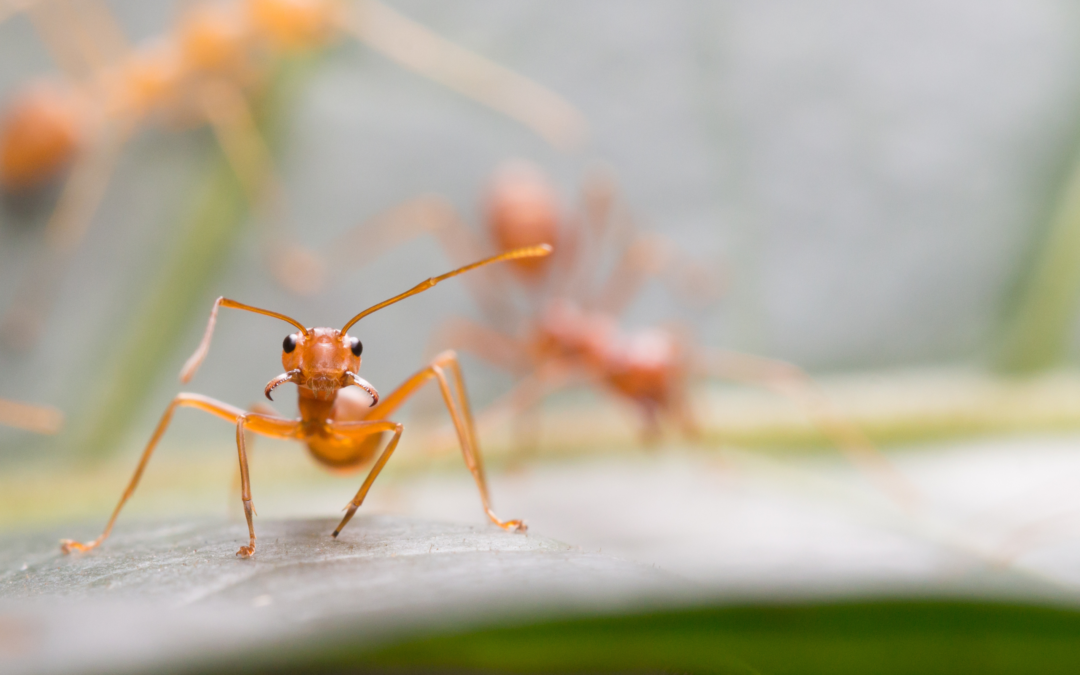
Fire ants might be small, but they are mighty. They can leave a very painful and unwanted welt on your skin if they feel threatened. Don’t let them ruin your summer fun; read more and discover how you can avoid and prevent these pests.
Luckily fire ant mounds are usually easy to spot; so if you find one on your property, it’s best to take care of it as soon as possible. These pests are known for their fierce survival methods in harsh conditions. They can also find shelter in or near HVAC units and electrical boxes, so be aware when working in these areas of your home.
If they do find shelter in electrical boxes, it’s important to remove them as soon as you can, as they can cause damage to wire and equipment.
The best ways to keep these pests out of your yard for the summer is to:
If you need more support, reach out to your local pest control company. These professionals will provide you with a comprehensive fire ant control and prevention plan for fire ants and other summer pests.
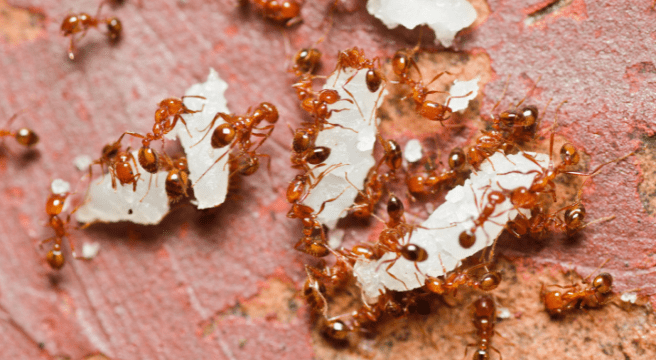
Red Imported Fire Ants (RIFA) have been around for decades, originally coming from South America and first arriving in the U.S. somewhere between 1933 and 1945. They are commonly found in the southern states ranging from Texas to Florida. These pests can be aggravating and quite painful if they bite. It helps to know when they are most active and how to deal with them.
Red imported fire ants are similar in appearance to regular black ants but give off a dark reddish-brown color. They measure 1.6mm to 5mm in length.
Fire ants are known to search for food in warmer temperatures, especially in the range between 72°F and 96°F. They are mostly active during the summer and fall months but can emerge as early as March. Their mounds can be found in yards, stumps, rotting logs, and even around playgrounds. Fire ant mounds can house up to 200,000 individuals and can be up to two feet high and three feet across.
Due to their habitat, they can be a threat to people who enjoy being outside. Although commonly referred to as a bite, they actually sting. Red ants are known to sting humans who disturb a mound. The sting of a red imported fire ant is painful, and the results of the sting are raised welts that can become a white pustule. Often a person will find that they have been stung multiple times by different ants. The biggest threat is if the person has an allergy to insect stings.
If you end up finding these nests or RIFAs roaming in your home, contact a professional local pest control company who can help set up a treatment and control plan for your home. Since RIFAs are known to have a very painful bite, it’s important to remove them as soon as possible.
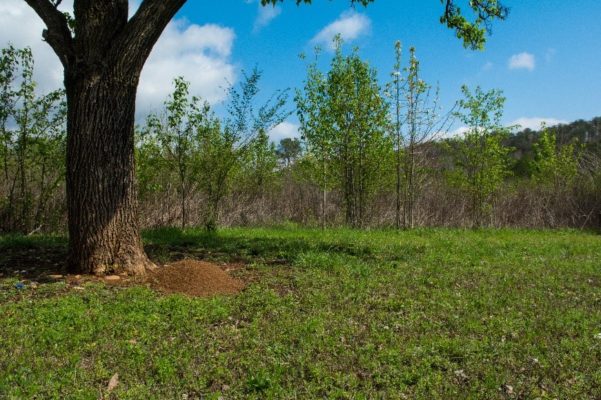
If you’ve ever noticed dirt mounds throughout your yard, you might be assuming that they are just ant mounds. But, if you look closer, certain mounds could be home to a completely difference species. Digger bee mounds could easily be confused with ant mounds, but truthfully, the two species couldn’t be more different.
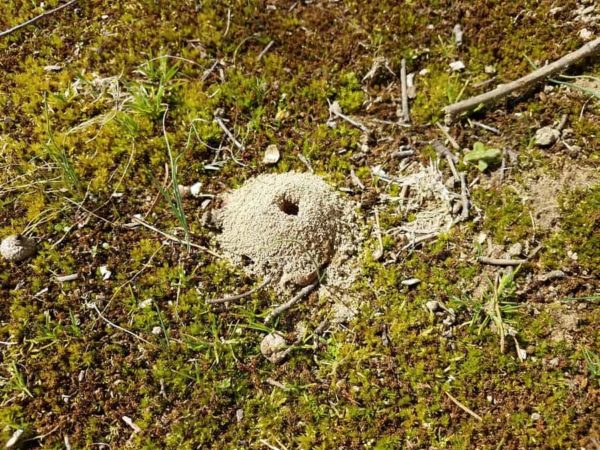
Digger bees are ¼ to ½ inch long, and depending on their species can be dark, shiny metallic, often with yellow, white, or rust-colored markings. What’s unique about digger bees from other bees is they tend to build their nest about 6 inches deep under the ground. The adult female digger bees live in these mounds underground while the male digger bees dig to the surface of the soil creating a pathway for the females to emerge during springtime.
Digger bee mounds can usually be found in areas of your yard where the grass is sparse, such as a dry or shady area. They typically build their nests close together, creating a cluster of several small mounds.
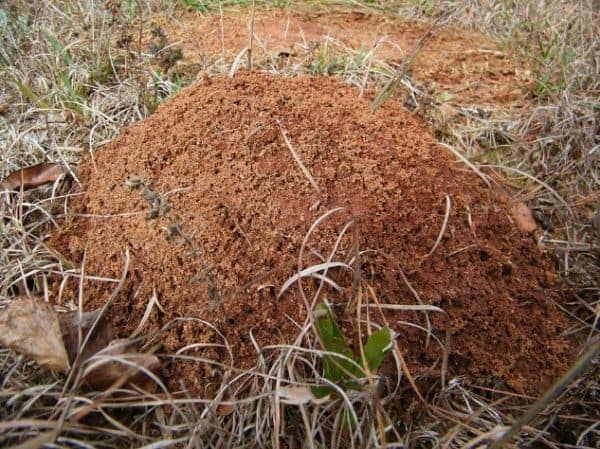
Fire ants can vary in different sizes but have a dark red body color that can range from reddish brown to reddish black, depending on their species. Fire ants do have a stinger and when used can give off a painful sting.
Fire ant mounds are usually raised where you can easily spot them in your yard. The mounds are also dome-shaped and can range from two- to four-square feet in size. Fire ant colonies can be found to have an average of 80,000 worker ants. They typically like to avoid darkness and shade; therefore, they will build their mounds in sunny areas of yards, rather than in shaded areas.
From above, you can see just how different these two species are and how different their habitat is. While digger bees like to build their mounds underground and in shaded areas, the fire ant can be seen building theirs visibly and in sunny areas of the yard. If you believe you have either of these pests in your yard, it’s best to contact a professional pest control company who can help identify and provide treatment plans.
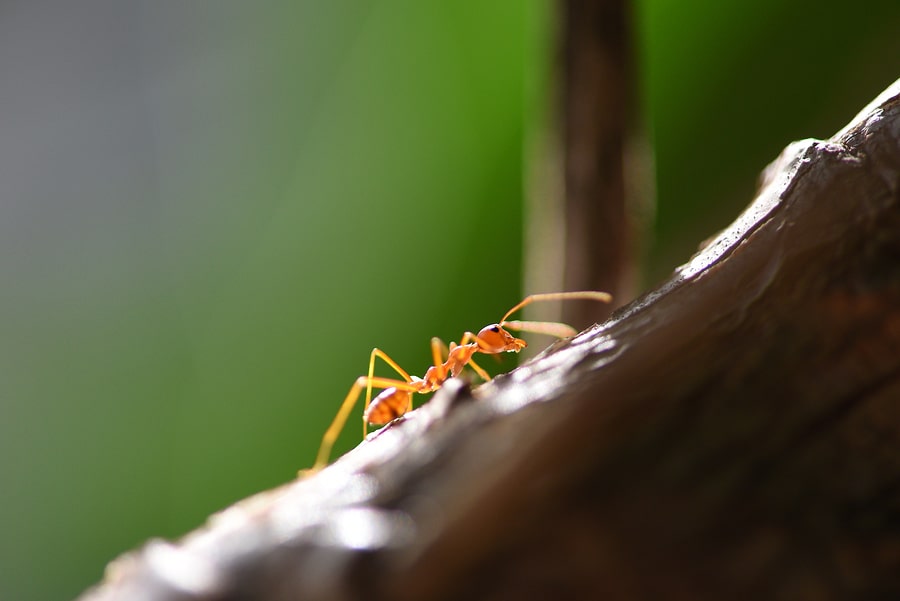
With the persistent surge of rain in the recent weeks, you might start to notice some unwanted pests arriving in your yard. A particular pest to look out for during this rainy season is the Imported Red Ant. These ants can survive in harsh weather conditions, including floods. The Imported Red Fire Ant or RIFA can not only cause damage to your home but also pose health risks to your family.
These ants are known for their fierce survival methods in harsh conditions. During floods, the RIFA colony can connect to form a ball and float until they reach dry land. When doing this, the RIFAs become hungrier and more aggressive, making them more likely to attack. The RIFA is known to have a painful sting/bite that can be more aggressive than other species of ants. A person is most likely to be stung by multiple RIFAs that causes a raised welt. RIFAs venom is protein based, which can cause a strong allergic reaction.
For homeowners, it’s important to know the places to look to indicate a RIFA nest. Most RIFA nests are located outside in soil or near structural foundations and typically build a dome-shaped mound. These ants can also be found under objects such as stones of the base of a tree. One location that homeowners might not realize RIFAs can invade are HVAC units and electrical boxes. They will usually build their nest right up against them or inside the boxes.
If you end up finding these nests or RIFAs roaming in your home, contact a professional ant control company who can help set up a treatment and control plan for your home. Since RIFAs are known to have a very painful bite, it’s important to remove them as soon as possible.
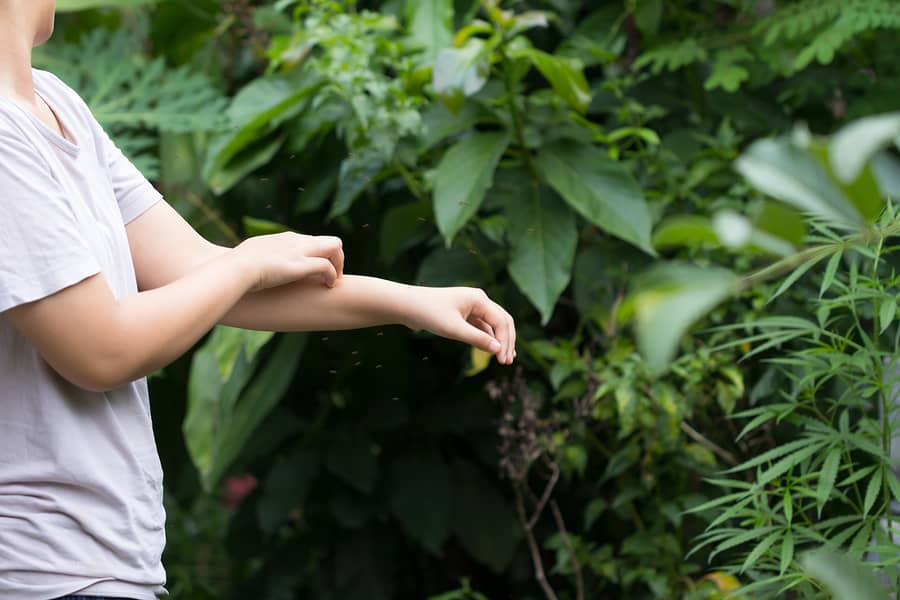
As the weather continues to pull you and your family towards more outdoor activities, the chances of getting bug bites increases. Here are some tips to prevent these bites and stings, and get back to enjoying your summer:
Treating bug bites and stings can put a damper on any outdoor activity. If you have issues with biting/stinging pests, call (866) 616-0862 or request a free pest inspection from your local pest control company.